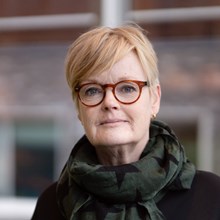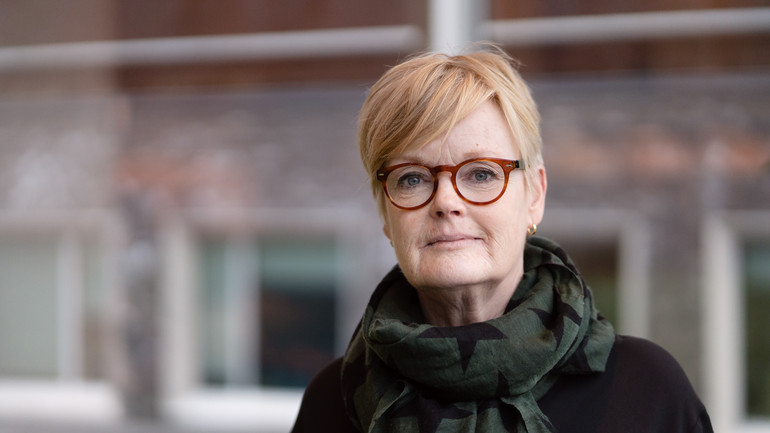Autumn 2026 - Semester 1
Spring 2027 - Semester 2
Optional courses during the semester:
If you want to deepen your understanding of educational research and increase your own teaching competence with a scholarly approach, the Teaching and Learning in Higher Education master’s programme is a good option. In the programme, you will advance your scholarly approach to your teaching profession. This includes the ability to critically investigate and analyse teaching and strategically develop an organisation. This advancement in competence will qualify you for more skilled professional assignments and expand your opportunities to participate in academic dialogue.
Studying at a 50 per cent pace during four semesters allows you to work alongside your studies. This programme offers you a path to career development within higher education or adult education in related fields. The programme is directed towards people who are already working in higher education or a related field.
The difference between the one-year and the two-year master’s programmes is that the one-year programme is focused on practice and profession. The two-year programme is additionally focused on developing the necessary skills for the student to independently develop research in the field of teaching and learning in higher education.
The programme is designed to provide students with the teaching skills necessary to meet future challenges in higher education. It is the first English-taught master’s programme in Sweden with a focus on teaching for higher education. The programme is part of an active research environment at Malmö University, focusing on higher education.
The curriculum reflects the multidisciplinary nature of teaching and learning in higher education, and this focus shapes the courses and reading lists. The courses address themes such as student-centred teaching, teaching of heterogeneous student groups, challenge-based learning, and the digitalisation and internationalisation of higher education.
The programme provides you with in-depth knowledge of learning theories, teaching methods, and adult learning. This also includes the ability to critically analyse learning environments and engage in strategic organisational development efforts. You will learn about central concepts within the field of higher education and related research.
The programme is also closely tied to practice and profession. As a student, you will use your own work experiences as a starting point to investigate and examine differences in teaching environments.
The programme is developed to be suitable for its professional students. The programme is conducted during four semesters, and the study pace is half speed (50 per cent). By utilising a full range of digital tools, such as live streaming and webinars, the programme allows you to arrange your participation in lectures, seminars, and discussions depending on when and where you work.
The programme (60 credits) includes advanced courses as well as a master’s thesis (15 credits) in teaching and learning in higher education. The programme also includes developmental projects based on your current professional role.
To be eligible, you need to have a bachelor’s degree and at least three years of experience, either from teaching in higher education or from working with competence or skills development in academia. You are also eligible if you have 1 year of experience and at least 60 credits of coursework in either educational or behavioural sciences.
Eligible applicants can also include professionals working with adult education in public sector organisations, such as the police, defence, customs, vocational schools, and Komvux.
During the programme, you will have opportunities to network with other course participants and share your experiences of higher education and equivalent organizations. You will also have opportunities to receive guidance from the instructors in the master’s programme on how to advance in your career.
The programme is a merit for those seeking a career advancement within academia, offering a path for advancing in their teaching careers or moving into managerial positions, such as Director of Studies, Head of Department, Deputy Vice-Chancellor, or Dean. A master’s degree in teaching and learning for higher education also opens up employment opportunities in other public and private organisations focused on development in adult education.
If you are a doctoral student or are planning on pursuing a doctoral degree, the programme allows you to advance your knowledge and skills in teaching and learning in higher education. The programme is a merit for those seeking a position as a doctoral student.
The two-year master’s programme is recommended to those interested in developing the necessary skills to independently develop research in the field of teaching and learning in higher education.
Optional courses during the semester:
Here you can find the entry requirements, as well as how the available study places are distributed between applicants in the selection.
If you have any questions about general admission, you are welcome to contact us.
General entry requirements:
First-cycle qualification comprising at least 180 credits.
Specific entry requirements:
- at least three years of documented experience of teaching at a higher education level, or working with skills development in an equivalent organisation (for example, the Swedish Police Authority, Swedish Customs, Swedish Armed Forces), in addition to English 6,
OR
- at least one year of documented experience of teaching at a higher education level, and successful completion of courses comprising at least 60 credits in educational sciences or other subjects in the behavioural sciences, in addition to English 6.
100% University credits completed

Marie Leijon is a senior lecturer and educational developer at the Centre for Teaching and Learning. She is also the programme coordinator for the Teaching and Learning in Higher Education master’s programme.

Marie Leijon is a senior lecturer and educational developer at the Centre for Teaching and Learning. She is also the programme coordinator for the Teaching and Learning in Higher Education master’s programme.
This international master’s programme serves as a meeting place for a variety of experiences and perspectives. At the programme’s core is an ambition to create a community of practice with the focus on preparing and developing our future university teachers.
The programme is therefore closely connected to practice and profession while also reflecting the interdisciplinary nature of higher education pedagogy. The students in the programme deepen their knowledge in the higher education pedagogical research area and can thus lay the foundation for further studies. It also develops the student in their professional teacher role and in that sense can be an important career step.
The programme covers themes in higher education, such as adult learning, challenge-based learning, student-centred teaching, teaching of heterogeneous student groups, learning environments, digitalisation, and internationalisation. Participants work both individually and in a collaborative peer-learning process with practice-based projects.
Universities and higher education institutions need people with a good understanding of how adults learn and how to design and organise adult education. In this programme, you will, for example, learn how to use a research-based approach to carry out critical analyses of learning environments and strategic development of higher education. In the programme, we explore issues such as what pedagogical teaching and learning skills and leadership attitudes university teachers need to foster student-centred teaching. This programme can lead students to new opportunities for more advanced tasks and increase opportunities to participate in academic conversations. It can open up different career paths within and outside the academy, including organisations and companies that work with adult learning.
Anyone with an ambition to deepen their understanding of teaching and learning in higher education from a scholarly approach. This programme is suitable for people who either work in higher education, or a related field, or have earned at least 60 credits from coursework in educational or behavioural sciences.
It is unique in its ambition to intertwine theories, practice-based knowledge and research in higher education with professional development in teaching. The programme has a unique double pedagogical perspective and students will deepen their knowledge about teaching and learning in higher education, as well as develop and explore teaching and learning processes, all from a critical perspective.
When you study at Malmö University you are part of a vibrant and innovative environment. Our students will be active participants in what is a rapidly growing research field, namely teaching and learning in higher education. Malmö University’s profile includes a focus on inclusion, widening participation and challenge-based learning. Those perspectives create a solid ground for this programme.